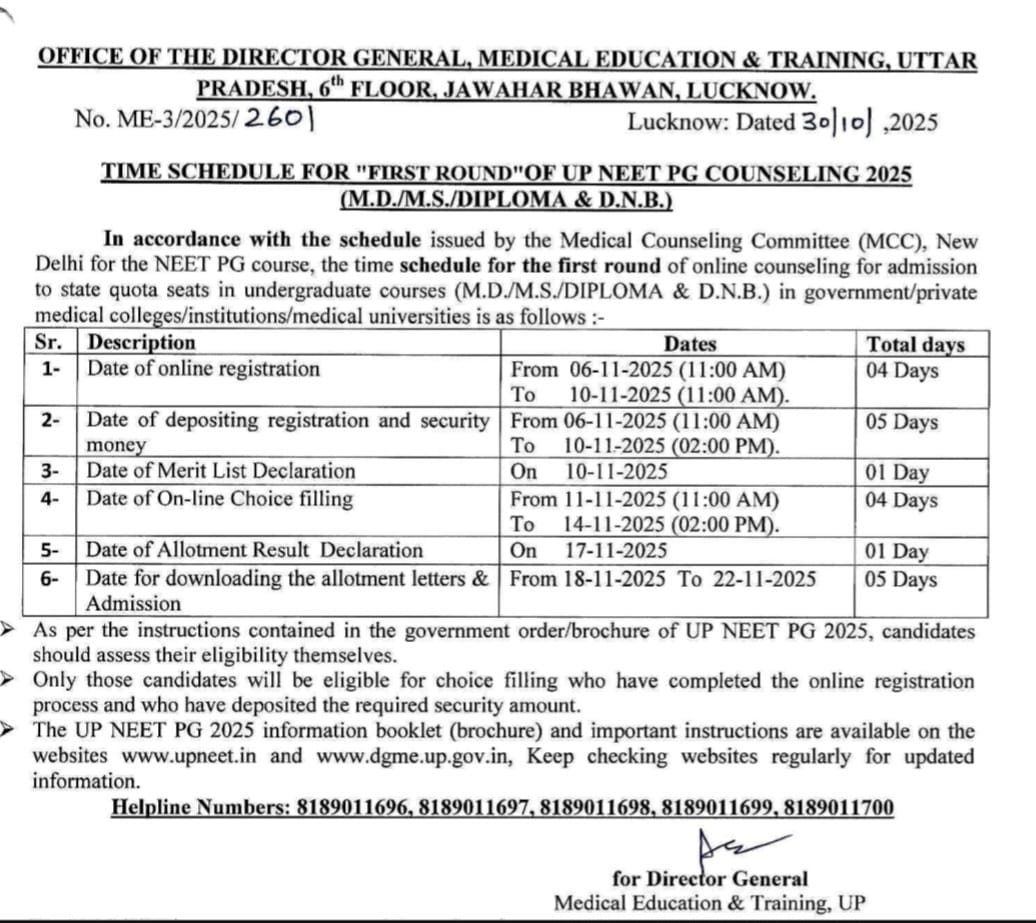The admission process for the MBBS course in India for session 2025 is governed by a set of rules and regulations laid down by the National Medical Commission (NMC), the Medical Counselling Committee (MCC) and respective state authorities. Among these is the final phase of counselling commonly known as the Stray Vacancy Round (also called “stay round” by some aspirants) which deals with filling up leftover seats after the main rounds. This blog explains what the stray round is, how it works in 2025, what aspirants need to know, and tips to navigate it effectively.
What is the Stray Vacancy Round?
After the main rounds of counselling (Round 1, Round 2 and Round 3/mop-up) for MBBS (under the NEET UG scheme) are completed, some seats may remain vacant due to students exiting, not joining, or other administrative issues. The stray vacancy round is the final opportunity to fill these leftover seats.
Key features:
It is typically organised by either the MCC (for All-India Quota / deemed / central universities) or by the State Counselling Authorities (for state-quota seats) depending on seat type.
It involves additional security deposits, stricter conditions, and fewer exit options compared to earlier rounds. For example: one prospectus shows that candidates in the stray round may be required to pay a security deposit of ₹ 5 Lakhs for MBBS seats.
Once a seat is allotted in the stray round and joined, the options to resign or move are very limited or nil. The 2025 bulletin indicates “no resignation after Round 3” rule applies before the stray round.
Why the Stray Round is Important
For many aspirants, the stray round offers a last-chance entry into MBBS for that academic session. Some reasons it matters:
Some seats remain unfilled after initial rounds due to choices made by candidates, fee issues, procedural delays. For example, there were hundreds of MBBS seats vacant nationwide even after three rounds in 2025.
The rules in the stray round are stricter and more binding — meaning mistakes (timing, documentation, joining) may cost you the seat permanently for that year.
The time window may be tighter. The schedule may get extended or revised; aspirants need to monitor announcements closely.
Key Rules & Regulations for Session 2025
Here are the main points you should know for the stray round (and earlier rounds) for MBBS admissions in 2025.
Counselling Rounds & Exit/Upgradation Rules
The MCC Information Bulletin for NEET UG 2025 lays out that there are 4 rounds: Round 1, Round 2, Round 3 (mop-up), and then Stray Vacancy Round.
In Round 1: Free exit is allowed (a candidate can withdraw and join a subsequent round without heavy penalty).
In Round 2: Upgradation (moving to a higher preference) is allowed. If a candidate fails to join the allotted seat and exits, their security deposit may be forfeited and they may lose eligibility for some rounds.
After Round 3: For Stray Vacancy Round in many cases, no resignation or exit is permitted. Once you join, you accept the seat.
Eligibility for Stray Round
Candidates who have not yet joined any MBBS seat may be eligible to participate.
If you have already joined a seat in earlier counselling and moved out, you may be disqualified from stray round (depending on state/college rules).
Ensure you fulfil all document verification, eligibility criteria, registration deadlines as per the state/central authority.
Security Deposit / Extra Conditions
Some state prospectuses for stray round show a requirement of high security deposit specially for MBBS: e.g., ₹ 5 Lakhs for MBBS seats in stray round.
If an allotted candidate in the stray round fails to join or discontinues, they will forfeit the security deposit & tuition fee, and also may be barred from further rounds.
Seat Allotment & Reporting
After the allotment order is generated and tuition fee/security deposit is paid, downloading the allotment order is considered joining the seat. Then you must report to the institution within the stipulated time to be valid.
Failure to report may lead to discontinuation, forfeiture of fees, and loss of eligibility.
State-Specific Additional Rules
Some states impose additional service bonds, domicile or study-in-state criteria. For example, in Maharashtra students getting fee reimbursements must stay in India for 5 years after completion of degree; penalty ₹ 10 Lakh for leaving early.
In Telangana a 4-year study rule for domicile eligibility in NEET UG 2025 is under legal review.
Key Tips for Aspirants in Stray Round
Here are some practical tips to maximise your chances and avoid pitfalls:
Keep deadlines & notifications alive — Stray round schedule may come after long gaps; seats fill fast.
Prepare funds for security deposit/fee — The high deposit in stray round means you must have readiness.
Document readiness — Ensure all certificates, identity proofs, NEET score, category certificates etc are valid and ready.
Decide wisely — Since exit options are limited or non-existent in stray round, be ready to accept the seat if allotted.
Check college and seat status — Some seats remain vacant because of fee/hostel issues; research the college.
Understand binding conditions — Once you join in stray round, resigning may cost you future eligibility.
Watch for state-specific service bonds — If you are in a state requiring mandatory service or stay post-degree, factor that in your decision.
Alternative plan — Even if you miss a seat, keep backup options (e.g., other colleges, future session) rather than making hasty choices.
The stray vacancy round for MBBS in session 2025 is the final lifeline for many aspiring doctors. While it offers hope, it comes with stricter rules, higher stakes and less flexibility. Understanding the process, preparing in advance, and making informed decisions are key to turning this opportunity into a successful admission.


